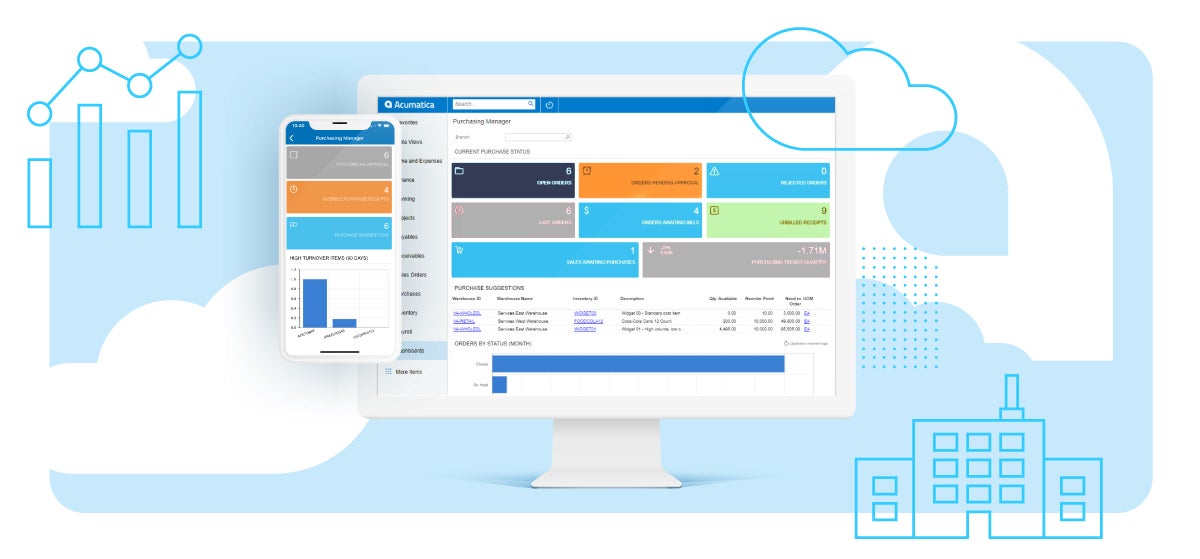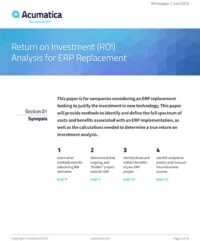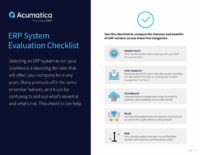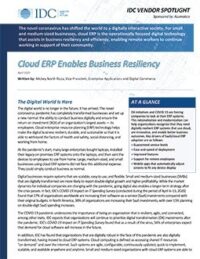What are the Differences Between On-Premises and Cloud ERP Solutions?
An ERP (short for “enterprise resource planning”) solution connects a company’s departments and acts as a single, centralized database. Data from sales, accounting, marketing, HR, and more streams into the ERP solution, and authorized users have access to the synchronized and accurate information. Such data sharing aids in the successful completion of tasks and in the making of strategic business decisions. This is true whether the ERP is implemented on-premises or in the cloud, but that’s where the similarities end.
With an on-premises solution, companies pay for the ERP software, the license to use the software, and the hardware upon which it runs. The hardware is installed on-premises—hence, the name—and must be configured for compatibility with existing technology. Expert IT technicians, who implement the ERP solution across the organization, will also be tasked with its upkeep. This includes performing routine maintenance, replacing aging and/or defective parts, regularly updating the software, and executing vital security measures. The effort and expense to maintain an on-premises solution adds up over the years.
In contrast, cloud ERP (Enterprise Resource Planning) solutions are affordable and easy-to-use from the outset. The cloud ERP vendor manages the hardware in an offsite data center and offers the solution via the internet. Once the software is available, every user can remotely access the software with any web-enabled device at any time and from anywhere, which ensures businesses have ongoing, all-time functionality. Additionally, upgrades, upkeep, and security needs are the vendor’s responsibility.
 Canada (English)
Canada (English)
 Columbia
Columbia
 Caribbean and Puerto Rico
Caribbean and Puerto Rico
 Ecuador
Ecuador
 India
India
 Indonesia
Indonesia
 Ireland
Ireland
 Malasya
Malasya
 Mexico
Mexico
 Panama
Panama
 Peru
Peru
 Philippines
Philippines
 Singapore
Singapore
 South Africa
South Africa
 Sri-Lanka
Sri-Lanka
 Thailand
Thailand
 United Kingdom
United Kingdom
 United States
United States







